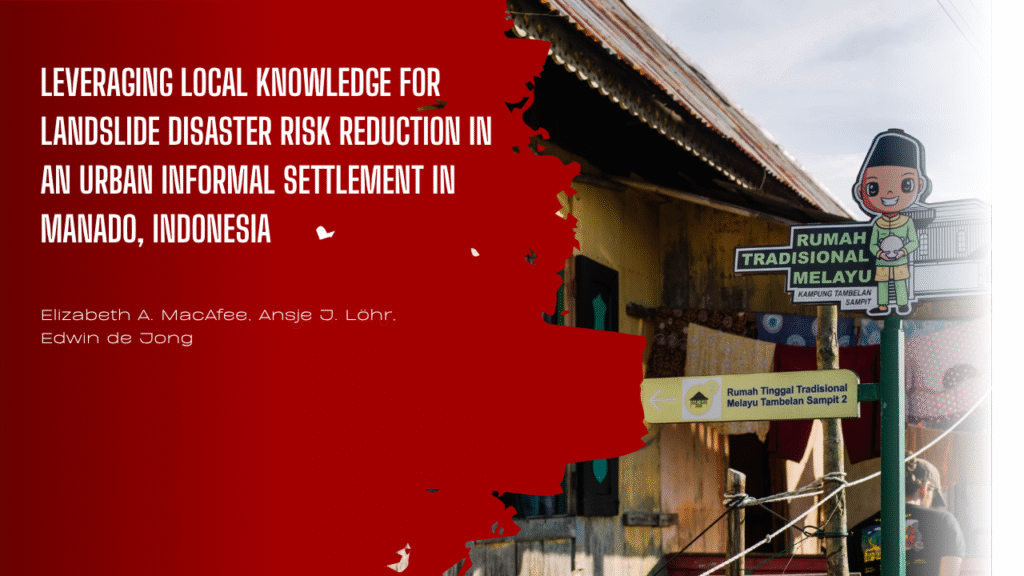Abstrak
Disaster preparedness and response, including for landslides, increasingly involves local knowledge. Incorporating contextual, dynamic and experience-based local knowledge leads to greater awareness of the interconnectedness of geological, natural, and social processes. Still, technical literature on urban landslide risk is mainly based on geological and natural dynamics and, to a lesser extent, physical infrastructure.
Moreover, although local knowledge is recognized as important in principle for all aspects of disaster risk management, it is not frequently taken as a starting point for identifying contextually specific landslide risk factors in practice. To gain insights into local knowledge on factors contributing to landslide risk, we conducted a qualitative case study within a landslide-prone informal settlement in Manado, Indonesia. The study comprised qualitative household interviews, transect walks, and ethnographic observation.
Our findings indicate that anthropogenic factors specific to informal settlements, particularly inadequate solid waste management, may serve as an overlooked risk factor for urban landslides. This is especially problematic in low-income or informal neighborhoods, where detrimental effects of poor solid waste management frequently intersect with heightened vulnerability to various hazards.
We therefore advocate systematically incorporating anthropogenic factors into studies of contributing factors to urban landslides. Additionally, we encourage further research into the interactions between inadequate solid waste management and landslide risk. Finally, we call for leveraging local knowledge to enhance policy, planning, and research efforts, with the ultimate goal of fostering safer urban environments for all.


